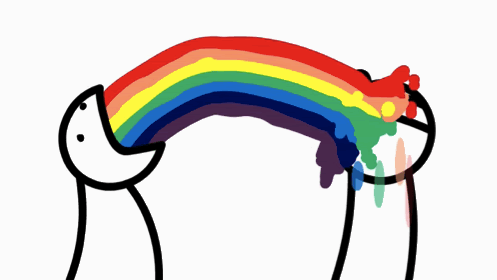On an island on the edge of an immense sea there is a city, a forest, and a boy named Oscar. Oscar is a shop boy for the most powerful magician in the village, and spends his days in a small room in the dark cellar of his master’s shop grinding herbs and dreaming of the wizards who once lived on the island generations ago. Oscar’s world is small, but he likes it that way. The real world is vast, strange, and unpredictable. And Oscar does not quite fit in it.
But now that world is changing. Children in the city are falling ill, and something sinister lurks in the forest. Oscar has long been content to stay in his small room in the cellar, comforted in the knowledge that the magic that flows from the forest will keep his island safe. Now, even magic may not be enough to save it. — [X]
The Real Boy is a tricky book to talk about. It’s one of those books in which every page holds something absolutely Important and mentioning it here with little context feels kind of rude. I said on Twitter that there was only one reaction GIF that could do this book justice and this is it:

Unfortunately, I can’t get away with leaving you lot with a summary and a GIF, so please, BEWARE OF SPOILERS.
First off, I am so grateful to Disability in Kidlit for existing and bringing this book (and so many others) into my radar. In her review of Ursu’s novel, Corinne Duyvis (author of Otherbound and one of the editors at Disability in Kidlit) examines the way Oscar’s autism is presented, the way it is part of his personality, and the way that Oscar’s un/awareness feeds into how he understands himself as a person.
For my part, I wanted to bring in our monthly theme and look at The Real Boy through the lens of retellings. There is a great deal of emphasis on storytelling, records, and mis/communication in the novel. Almost immediately, we are presented with the history of Aletheia, the decline of magic in its land, how Caleb (as a magician) is a rarity, and what Oscar’s own role is in this unique world:
It reads like exposition but it is so much more. Like in any fantasy novel, The Real Boy follows two sets of stories. The first is the overarching plot, one that focuses on the larger world, and in this case deals with the mysterious illness that certain city children are suffering from. The second is the micro-story, the one deals with the characters’ personal journeys, and in this case is about Oscar who sees himself one way– even if the world seems to see him another way.
As we move forward in the story, we start to get closer and closer to the truth of Oscar, Caleb, the Barrows, and the land of Aletheia. As we move forward, each story that Oscar believes in– be it the story of Caleb or the story of the wizard trees– come crumbling down. A harrowing experience, to be sure, especially when at some point, Oscar feels he has reached the sad truth of himself, of why he is the way he is.
In her interview with Duyvis, Anne Ursu talks about how “autism” as a word and a diagnosis is not something that exists in Oscar’s small world (and the even smaller world within it that he inhabits). It gave her the opportunity to talk about Oscar without readers scrutinizing him based on their knowledge of one aspect of his being:
[Oscar’s] autism is part of who he is, but it was not supposed to define him. — [X]
With Oscar, Ursu has taken the risk of retelling the story of an autistic boy through the retelling of Pinocchio. Now, I don’t think I’m in the position to say whether she should have taken this risk or not, but she did and I feel like she handles this storyline with sensitivity and empathy*. Like the reality behind the wizard trees, Oscar’s own story (and the story of how he understands his autism) isn’t meant to be a tidy one. In her own way, Ursu has expertly weaved together a story that questions stories (and histories) and why they are told the way they are.
Overall, the magic is fascinating, the writing is delightful, the illustrations are gorgeous, and the characters have such a bright spark of life they might as well be real (ha-ha). It was an absolute wrench to put this one down and I’m so glad I took my time with it. Books like The Real Boy make me pity people who don’t read “children’s” literature; they are missing out and it actually makes me angry. The Real Boy deserves a place on every reader’s shelf. Highly recommended. <3
*For people who have read this book and other books with autistic characters, please do let me know what you think in the comments. As always, I wish to learn and be aware of my own ignorance. :)




Must. Read. This.
It’s really good! I can lend it to you, if you like! :)
What an interesting way of introducing autism… through a fantasy novel :D Now I need to read it :)
Hope you like it. :)
I too loved this book! Your review was fantastic.
Thank you! <3